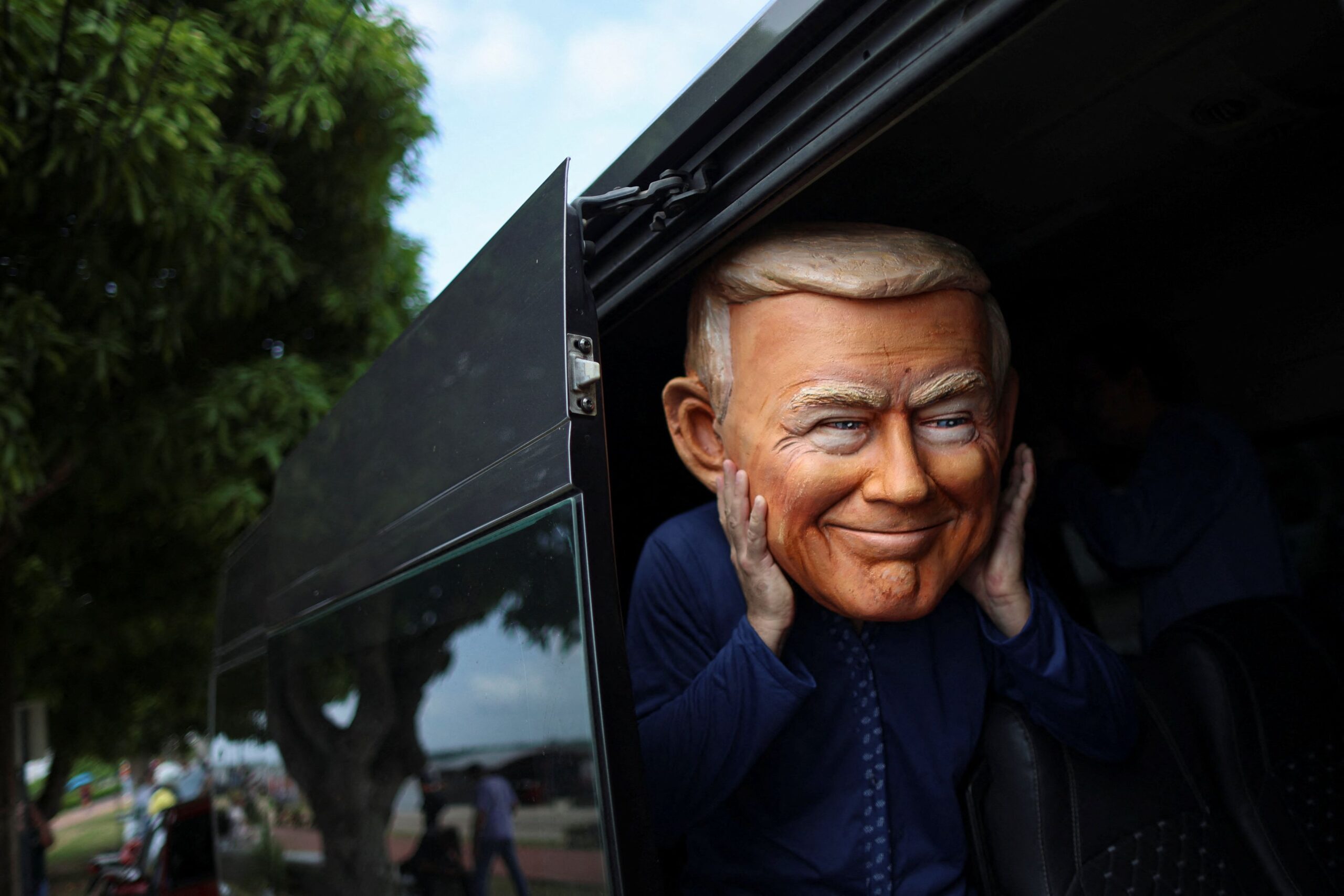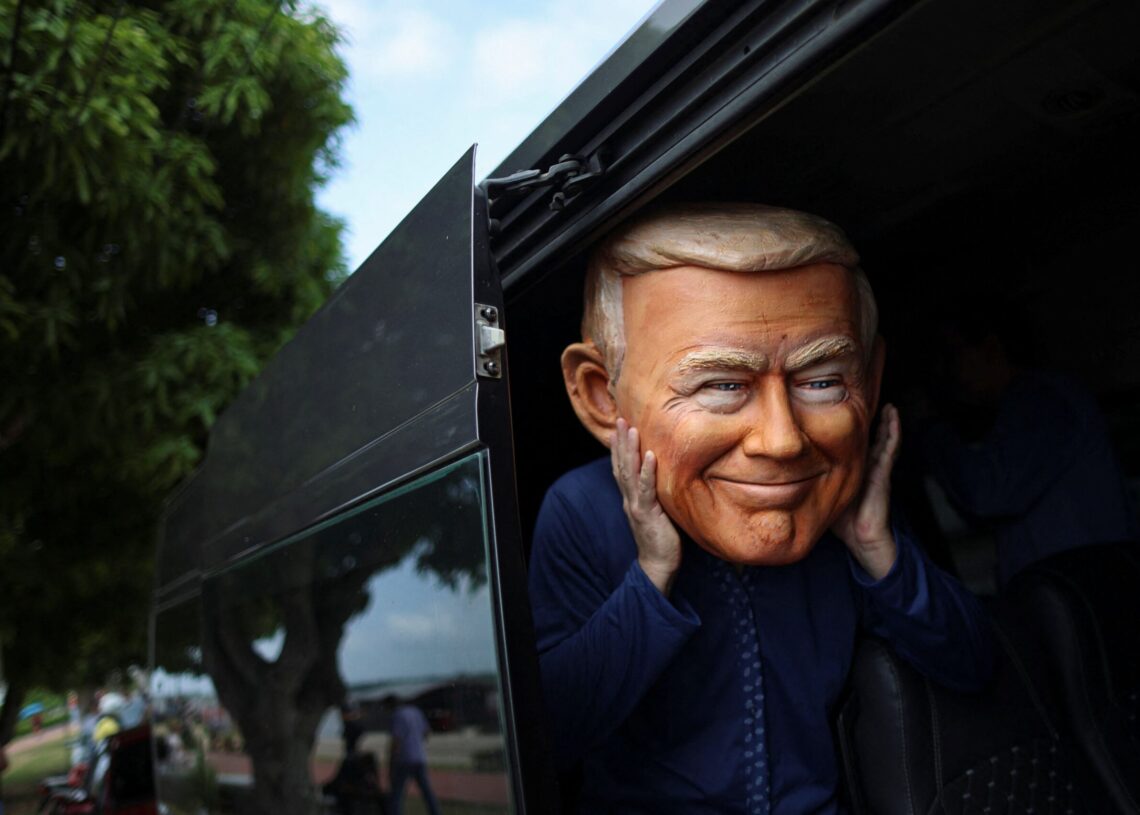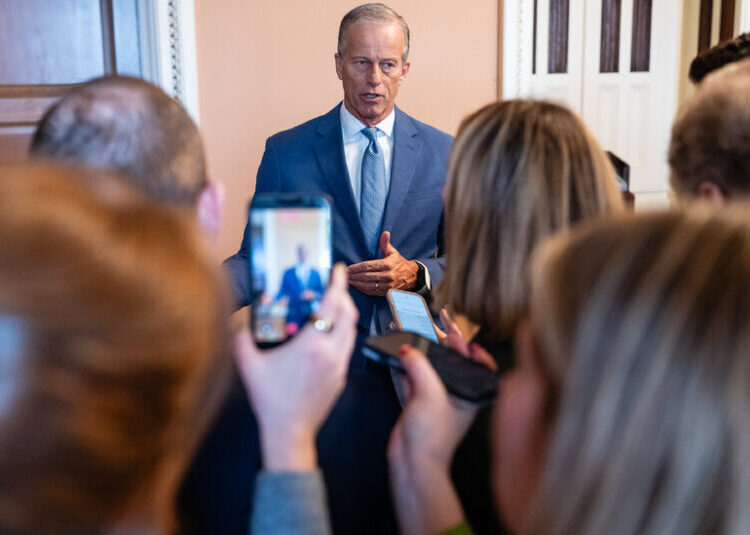
At the mouth of the great Amazon, not all visitors were welcome. Indigenous protesters in the Brazilian port city of Belém, which is hosting an annual major U.N. climate summit, forced their way into the premises of the meetings earlier this week, clashing with security personnel. They denounced the predations of vast agribusinesses, oil barons and illegal miners complicit in the deforestation of their Amazonian homelands. After some scuffles and agita, they eventually left.
At the mouth of the great Amazon, not all visitors were welcome. Indigenous protesters in the Brazilian port city of Belém, which is hosting an annual major U.N. climate summit, forced their way into the premises of the meetings earlier this week, clashing with security personnel. They denounced the predations of vast agribusinesses, oil barons and illegal miners complicit in the deforestation of their Amazonian homelands. After some scuffles and agita, they eventually left.
The incident folded into the greater drama playing out at COP30 — the 30th U.N. Climate Conference — where the complex, sprawling geopolitical and economic policy concerns underlying climate action rub against the deep anguish and alarm of climate activists.
A decade after the ambitious Paris climate accords were forged under U.N. auspices, the world seems doomed to fail its chief target — the limiting of global warming to just 1.5 degrees above preindustrial levels. Maintaining that threshold seems a fantasy, my colleague Ruby Mellen reported, and it could be surpassed within this decade. Even as many countries have launched their transitions to renewable energy, global carbon emissions from fossil fuels are projected to rise to an all-time high. The International Energy Agency estimates that, if current policy conditions hold, the planet will warm nearly 3 degrees Celsius by 2100.
For some in Belém, the global calamity that will entail is impossible to deny. “As a scientist, I’ve never had reason to be so concerned as I am today for the future we are facing,” Johan Rockstrom, director of the Germany-based Potsdam Institute for Climate Impact Research, said in a video message welcoming delegates to a pavilion at the summit on planetary science. “We’ll be approaching tipping points of irreversible changes undermining life support and will have impacts affecting billions of co-citizens around the world. We need climate action faster than ever. Scale and pace is the only currency that matters.”
For President Donald Trump, little of this matters. He had denounced climate action as a “con job,” wants to expand drilling for oil and gas off the U.S. coast, and has campaigned against the green policies of other Western countries. “If you don’t get away from this green scam, your country is going to fail,” he said at the U.N. General Assembly in September. “You need strong borders and traditional energy sources if you are going to be great again.”
Apart from withdrawing (for a second time) from the Paris climate accords, the Trump administration has also undermined or stalled international efforts to forge a treaty curbing of global plastic pollution as well as a separate potential pact to cut greenhouse gas emissions in international shipping. Trump’s domestic policies this term have sought to reverse the initiatives of the Biden administration, which pledged two years ago along with the rest of the world to transition away from fossil fuels, and saw massive investment in green energy as an essential part of the competition with China in the coming decades.
To no one’s surprise, not only is Trump a no-show at the ongoing summit in Brazil, but the White House also didn’t even dispatch a senior-level delegation — as other major emitters whose leaders are also absent, such as China and India, have. At a leaders’ summit that took place ahead of the start of COP30 this week, Trump’s counterparts spoke gloomily of the moment. “Ten years ago, the world came together in Paris united in our determination to tackle the climate crisis. A consensus that was based on science that is unequivocal,” British Prime Minister Keir Starmer said. “Today, sadly, that consensus is gone.”
Colombia’s leftist president, Gustavo Petro, who is already locked in battles with the White House, pulled fewer punches. “Mr. Donald Trump isn’t coming. He’s behaving in a way that denies science, and he’s leading his society with eyes closed into the abyss and, with it, humanity,” Petro said. “Mr. Trump is wrong. Science illuminates the collapse if the United States doesn’t move toward decarbonizing its own economy.”
Even in his absence, you can still see the shadow of Trump. Reporters on the ground touted delegates wearing green caps that mimicked Trump’s MAGA messaging, declaring “Make Science Great Again.” California Gov. Gavin Newsom (D) went to Belém on Tuesday, reprising his role as one of the president’s most outspoken opponents.
“He’s an invasive species; he’s a wrecking-ball president,” Newsom said. “He’s trying to roll back progress of the last century. He’s trying to re-create the 19th century. He’s doubling down on stupid.”
The scene was a return to the atmospherics of Trump’s first term, where Democratic governors sought to fill the American void at earlier climate gatherings. The stakes seem higher now. “You know who is cheering, who is singing his praises? President Xi of China,” Newsom said. “They are sitting back and dominating supply chains, because they understand the great opportunity of clean energy.”
According to one estimate by researchers at Johns Hopkins University, since 2011, Chinese firms have invested at least $227 billion in green manufacturing projects around the world — with the majority of that sum finding its way to countries in the Global South. Adjusted for inflation, it’s a figure larger than what the U.S. doled out to Europe under the Marshall Plan in the wake of World War II.
Now, it seems clear that the world is not waiting for the United States. Given growing difficulties in finding absolute consensus among U.N. members, countries such as Brazil have sought out “coalitions of the willing” to work on specific climate actions plans or solutions.
“Climate change is no longer a threat of the future. It is a tragedy of the present,” said Brazilian President Luiz Inácio Lula da Silva in an opening speech. “We’re moving in the right direction,” he added, “but at the wrong speed.”
In remarks made to journalists, Christiana Figueres, a Costa Rican diplomat and one of the key architects of the 2015 Paris agreement, said it was a “good thing” that Trump was not present in Belém and, as a result, not engaged in overt acts of bullying during the meetings. She noted how clean energy was now receiving double the investment globally as fossil fuel, and being pursued ambitiously by many nations in the Global South.
“The decarbonization of the world economy is irreversible,” Figueres said. “The momentum is building to the point where it is simply unstoppable, with or without the United States.”
The post With Trump absent from COP30 talks, the world moves on without U.S.
appeared first on Washington Post.




